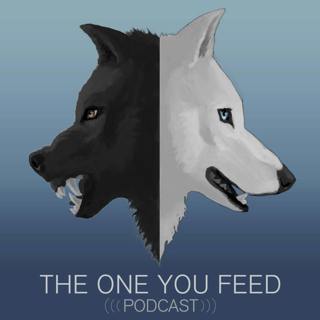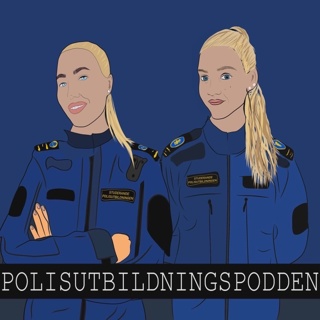
Johann Hari
This week we talk to Johann Hari about battling our demonsJohann Hari is a British journalist. He has written for many of the world’s leading newspapers and magazines, including the New York Times, Le Monde, the Guardian, the Los Angeles Times, the New Republic, the Nation, Slate, El Mundo, and the Sydney Morning Herald. He was a lead op-ed columnist for the Independent, one of Britain’s leading newspapers, for nine years.Johann was named ‘National Newspaper Journalist of the Year’ by Amnesty International twice. He was named ‘Environmental Commentator of the Year’ at the Editorial Intelligence awards, and ‘Gay Journalist of the Year’ at the Stonewall awards. He has also won the Martha Gellhorn Prize for political writing.His latest book is called Chasing the Scream, The First and Last Days of the War on Drugs In This Interview Johann and I Discuss...The One You Feed parable.The origins of the war on drugs.Is the war on drugs productive.How every culture in the world has looked for ways to become intoxicated?The % of people who use drugs who ever have a problem with it.For more show notes please visit our website Some of our most popular interviews that you might also enjoy:Dan HarrisMaria PopovaTodd Henry- author of Die EmptyRandy Scott HydeSee omnystudio.com/listener for privacy information. See Privacy Policy at https://art19.com/privacy and California Privacy Notice at https://art19.com/privacy#do-not-sell-my-info. Learn more about your ad choices. Visit megaphone.fm/adchoices
13 Maj 20151h 3min

Edward Slingerland
This week we talk to Edward Slingerland about trying not to tryEdward Slingerland is a Professor of Asian Studies and Canada Research Chair in Chinese Thought and Embodied Cognition at the University of British Columbia, and was educated at Princeton, Stanford and the University of California, Berkeley. His areas of specialty include Chinese thought, comparative religion, cognitive science, and the relationship between the sciences and the humanities. In addition to over twenty academic journal articles in a range of fields, he has written several scholarly books, including What Science Offers the Humanities and a translation of the Analects of Confucius. His first book for a popular audience is called Trying Not to Try: Ancient China, Modern Science, and the Power of Spontaneity In This Interview Ted and I Discuss...The One You Feed parable.Trying not to try.The tension of trying to relax.The conscious mind vs the unconscious mind.The ancient secrets of Wu Wei.For more show notes visit our website Some of our most popular interviews that you might also enjoy:Dan HarrisMaria PopovaTodd Henry- author of Die EmptyRandy Scott HydeSee omnystudio.com/listener for privacy information. See Privacy Policy at https://art19.com/privacy and California Privacy Notice at https://art19.com/privacy#do-not-sell-my-info. Learn more about your ad choices. Visit megaphone.fm/adchoices
5 Maj 201546min

Bonus Re-Issue: Rich Roll from March 2014
Bonus Re-Issue from March 2014This week on The One You Feed we have Rich Roll.Rich Roll is a 47-year old, accomplished vegan ultra-endurance athlete and former entertainment attorney turned full-time wellness & plant-based nutrition advocate, motivational speaker, husband, father of 4 and inspiration to people worldwide as a transformative example of courageous and healthy living.In 2012, Rich became a #1 bestselling author with the publication of his inspirational memoir Finding Ultra: Rejecting Middle Age, Becoming One of the World’s Fittest Men, and Discovering Myself. Taking up where the book leaves off, in 2013 Rich launched the wildly popular Rich Roll Podcast, which persistently sits atop the iTunes top-10 lists.In May 2010, Rich and his ultra-colleague Jason Lester accomplished an unprecedented feat of staggering endurance many said was not possible. Something they call the EPIC5 CHALLENGE – a odyssey that entailed completing 5 ironman-distance triathlons on 5 islands of Hawaii in under a week. Commencing on Kauai, they travelled to Oahu, Molokai and Maui before finishing on the Big Island, following the course of the Ironman World Championships on the Kona coast. In This Interview Rich and I Discuss...The One You Feed parable.His experience feeding the bad wolf.His battle with alcoholism.How his sobriety wasn't all he needed for happiness.His moment of clarity at 40 that made him change his life again.The value of a plant based diet.How important it is to be ourselves and be vulnerable in telling our story.How nervous he was about sharing his innermost thoughts in his book.How he followed his heart and it led to a new life for himWhy you should stop lifehacking and invest in the journey.How to push through discomfort.The difference between the thinking mind and your higher consciousness.Eric taking on a 30 day plant power challenge.Rich Roll LinksRich Roll homepageThe Rich Roll podcastRich Roll on MediumWhy You Should Stop Lifehacking and Invest in the Journey@RichRoll on TwitterSome of our most popular interviews you might also enjoy:Mike Scott of the WaterboysTodd Henry- author of Die EmptyRandy Scott HydeSee omnystudio.com/listener for privacy information. See Privacy Policy at https://art19.com/privacy and California Privacy Notice at https://art19.com/privacy#do-not-sell-my-info. Learn more about your ad choices. Visit megaphone.fm/adchoices
30 Apr 201546min

Rich Roll and Julie Piatt
This week we talk to Rich Roll and Julie Piatt about the challenges and the joys of transformation.Rich Roll is a 47-year old, accomplished vegan ultra-endurance athlete and former entertainment attorney turned full-time wellness & plant-based nutrition advocate, motivational speaker, husband, father of 4 and inspiration to people worldwide as a transformative example of courageous and healthy living. He is the author of Finding Ultra: Rejecting Middle Age, Becoming One of the World's Fittest Men, and Discovering Myself. Julie Piatt aka "SriMati" is a plant based chef, singer songwriter, spiritual guide, and mother to four. Julie has spent decades finding the divine in all her endeavors. Living from a deep place of devotion she experiences the presence of God: the conscious eternal flame in all life experiences, the seemingly light and dark, joyous and painful. Together they are the authors of the excellent new book The Plantpower Way: Whole Food Plant-Based Recipes and Guidance for The Whole FamilyIn This Interview Dale and I Discuss...The One You Feed parable.How what we think about grows.The Plant Power Way.Eric's diet transformation.For full show notes and more visit our websiteSee omnystudio.com/listener for privacy information. See Privacy Policy at https://art19.com/privacy and California Privacy Notice at https://art19.com/privacy#do-not-sell-my-info. Learn more about your ad choices. Visit megaphone.fm/adchoices
30 Apr 201552min

Dale Partridge
This week we talk to Dale Partridge about putting people above profit.Dale Partridge is a serial entrepreneur and CEO/Co-Founder of Sevenly.org and Startupcamp.com. In less than two years, Sevenly has given over $2.7 million in $7 donations to charities across the globe. Dale’s best known for his expertise in branding, marketing, and social media.Dale started his first company while still a teenager and has partnered and launched a few successful organizations since. His has a mission to lead a generation toward generosity.He has been featured in various business publications including the cover of Entrepreneur Magazine, INC Magazine Mashable, MSN Money, Forbes and the Los Angeles Times. His personal mission is to lead a generation toward generosity and empower business leaders through the teaching philosophy that people matter. His latest book is called People Over Profit: Break the System, Live with Purpose, Be More Successful In This Interview Dale and I Discuss...The One You Feed parable.How love and truth always winFor more information visit our website Some of our most popular interviews that you might also enjoy:Dan HarrisMaria PopovaTodd Henry- author of Die EmptyRandy Scott HydeSee omnystudio.com/listener for privacy information. See Privacy Policy at https://art19.com/privacy and California Privacy Notice at https://art19.com/privacy#do-not-sell-my-info. Learn more about your ad choices. Visit megaphone.fm/adchoices
29 Apr 201550min

Chris Hoke
This week we talk to Chris Hoke about finding spirituality within the darkness Chris Hoke is a jail chaplain and minister to Mexican gang and migrant worker communities in Washington’s Skagit Valley. His experiences are recounted in his new book, Wanted: A Spiritual Pursuit Through Jail, Among Outlaws, and Across Borders, which Kirkus calls “a liberating, transformative chronicle of how spirituality can foster inspiration and hope while emboldening the downtrodden through their darkest days.” Through his work with the organization Tierra Nueva, Hoke co-founded a coffee-roasting business, Underground Coffee, which employs men coming out of prison and addiction, and connects them to agricultural partners in Honduras. Hoke’s work has been featured on NPR’s Snap Judgment and in Sojourners, Image Journal, Modern Farmer, and Christian Century. In This Interview Chris and I Discuss...The One You Feed parable.Thinking of how we feed others as much as ourselves.The state of our current prison system.Practical Mysticism. For More details see our web pageSee omnystudio.com/listener for privacy information. See Privacy Policy at https://art19.com/privacy and California Privacy Notice at https://art19.com/privacy#do-not-sell-my-info. Learn more about your ad choices. Visit megaphone.fm/adchoices
22 Apr 201556min

Carol Dweck
[powerpress] This week we talk to Carol Dweck about mindsetCarol S. Dweck, Ph.D., is one of the world’s leading researchers in the field of motivation and is the Lewis and Virginia Eaton Professor of Psychology at Stanford University. Her research has focused on why people succeed and how to foster success.She has held professorships at Columbia and Harvard Universities, has lectured all over the world, and has been elected to the American Academy of Arts and Sciences. Her work has been featured in such publications as The New Yorker, Time, The New York Times, The Washington Post, and The Boston Globe, and she has appeared on Today and 20/20. Her book Mindset: The New Psychology of Success is considered one of the most influential books in the psychology of success and motivation. In This Interview Carol and I Discuss...The One You Feed parable.The Fixed and Growth Mindset.How in the growth mindset we believe in our ability to grow and change.See our website for more detailsSee omnystudio.com/listener for privacy information. See Privacy Policy at https://art19.com/privacy and California Privacy Notice at https://art19.com/privacy#do-not-sell-my-info. Learn more about your ad choices. Visit megaphone.fm/adchoices
15 Apr 201533min

David Redish
This week we talk to David Redish about decision makingDavid Redish is currently a professor in the Department of Neuroscience at the University of Minnesota. He received his undergraduate degree in writing and computer science from Johns Hopkins in 1991 and his PhD in Computer Science from Carnegie Mellon University in 1997, where he was a student member of the Center for the Neural Basis of Cognition under the supervision of Dr. David Touretzky. He was a postdoc with Drs. Bruce McNaughton and Carol Barnes at the University of Arizona from 1997-2000. He has been at the University of Minnesota since 2000, where his lab studies learning, memory, and how animals (including humans) make decisions. His latest book is called The Mind within the Brain: How We Make Decisions and How those Decisions Go Wrong. In This Interview David and I Discuss...The One You Feed parable.What a decision is.The four decision making systems in humans.For more information visit our websiteSee omnystudio.com/listener for privacy information. See Privacy Policy at https://art19.com/privacy and California Privacy Notice at https://art19.com/privacy#do-not-sell-my-info. Learn more about your ad choices. Visit megaphone.fm/adchoices
7 Apr 201543min





















